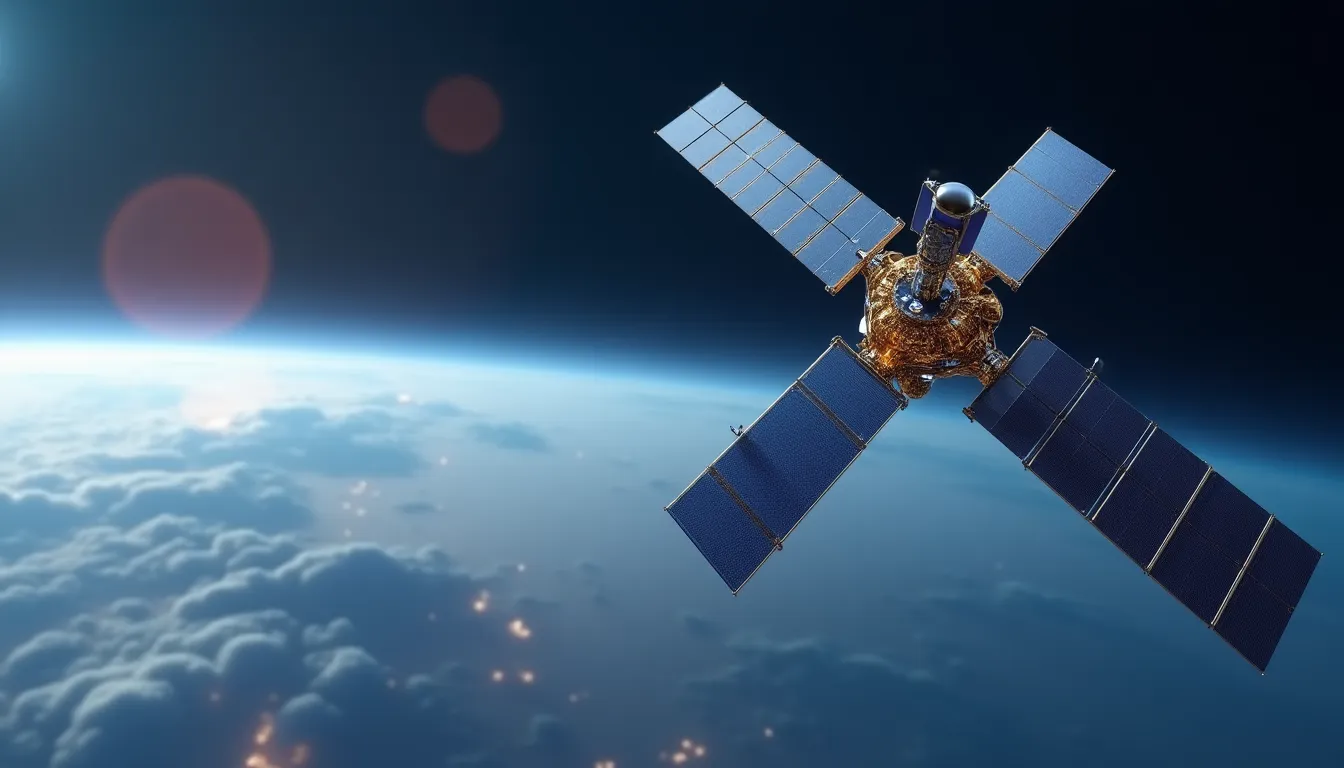In an era where the demand for data processing capabilities in space is rapidly increasing, Sophia Space is emerging as a significant player in the aerospace and defense sectors. The startup recently secured $3.5 million in pre-seed funding to further develop its revolutionary TILE™ platform, designed for efficient in-orbit computing and data management. This innovative technology promises to transform how satellite operators, defense systems, and commercial space stations handle their data workloads.
The TILE™ Platform: A New Paradigm in Space Computing
Sophia Space’s TILE™ platform is engineered to meet the demanding requirements of space environments. Its self-sustaining compute modules integrate solid-state technology, solar power, and advanced thermal battery systems for effective cooling. Designed to withstand radiation and operating in a vendor-agnostic manner, the TILE™ platform addresses the harsh realities of space while providing low-latency processing capabilities close to the data source.
The ability to process data directly in orbit significantly reduces latency, which is crucial for real-time applications in satellite operations and defense strategies. This capability is particularly relevant for the Golden Dome initiative, which aims to deploy space-based sensors and interceptors to enhance national defense against ballistic and hypersonic threats. As defense applications increasingly rely on timely data, the TILE™ platform’s efficiency could redefine operational standards in this field.
Strategic Collaborations and Industry Impact
Sophia Space is led by a team of seasoned professionals with deep expertise in aerospace and technology. Among them are Leon Alkalai, a former NASA JPL fellow, and Rob DeMillo, the CEO, alongside Brian Monnin, a veteran from Intel and Microsoft. Their combined experience positions Sophia Space to make substantial contributions to the growing field of orbital data computing.
The company has already garnered interest from key players in the aerospace industry, including Axiom Space, with whom it has signed a memorandum of understanding. This collaboration aims to explore the potential of orbital data centers in bolstering national defense architectures, particularly in relation to the U.S. Golden Dome project.
Sustainability and Scalability: A Vision for the Future
Sophia Space’s TILE™ platform is not just about performance; sustainability is a core principle of its design. The platform’s architecture is intended to be energy-efficient, providing scalable orbital computing infrastructure that could complement terrestrial data centers without depleting Earth’s energy resources or water supplies. As industries increasingly prioritize sustainable practices, Sophia Space’s innovations may help mitigate environmental concerns associated with conventional data processing.
The Broader Technological Landscape
The emergence of technologies such as Sophia Space’s TILE™ platform highlights a trend toward advanced computing solutions in space. These innovations can support complex AI workloads and edge computing, which are becoming increasingly critical as the volume of data generated in space continues to rise. The integration of advanced sensor modules, capable of comprehensive motion sensing, and high-performance MEMS accelerometers for precise navigation, will enhance the capabilities of systems operating in challenging environments.
Moreover, as the aerospace sector embraces the potential of in-orbit processing, products like the YWJ01ZB150 System, a professional gyro theodolite series, and the ZQXXSGDSS System, which integrates precision laser beam positioning, will play vital roles in supporting these advancements. Such technologies are integral to ensuring that data collected from space can be accurately processed and utilized for various applications, from scientific research to defense.
Conclusion
As Sophia Space embarks on this ambitious journey to redefine data processing in orbit, the implications for the aerospace and defense sectors are profound. By leveraging innovative technologies like the TILE™ platform and collaborating with industry leaders, Sophia Space is well-positioned to contribute significantly to the future of orbital computing. With a focus on sustainability and efficiency, the company not only addresses current needs but also sets the stage for a new era of advanced data management in space.
As the industry evolves, the success of Sophia Space could pave the way for a more interconnected and responsive space-based infrastructure, vital for both commercial and defense applications. The future of computing in orbit is bright, and Sophia Space is leading the charge.
References
-
Sophia AI Robot Just Said the Most SHOCKING Thing Yet… (www.youtube.com) - 8/13/2025 Sophia AI Robot just said something that shocked the entire internet. Was it a glitch, a warning… or something much deeper?
-
The Rise of Aerospace IR: Inside Startup Strategy with … (www.vcpost.com) - 7/21/2025 The Golden Dome, a U.S. missile-defense plan unveiled in May 2025, calls for deploying space-based sensors and interceptors to shield North …
-
On-orbit computing startup Sophia Space raises $3.5m … (www.datacenterdynamics.com) - 5/26/2025 Seattle-based Sophia Space, an orbital computing venture, has raised $3.5 million in pre-seed funding led by Unlock Ventures with the participation of angel …
-
Sophia Space Raises $3.5M to Launch AI Compute … (orbitaltoday.com) - 5/22/2025 Official reports from Sophia Space on 19 May 2025 inform the public of the successful closing of its pre-seed funding phase.
-
New space startup with several Seattle ties lands $3.5M … (www.geekwire.com) - 5/19/2025 Sophia Space, a new venture working on orbital computing and data centers in space, raised $3.5 million in pre-seed funding.
-
Sophia Space Closes $3.5 M Pre-Seed … (sophia.space) - 5/19/2025 The funding will accelerate the company’s development and deployment of its breakthrough TILE™ platform, enabling low-latency, energy-efficient …
-
Sophia Space (sophia.space) - 5/14/2025 Making AI and ML development work painstakingly slow for millions of users. Defense. 63%. Percentage of equatorial zones not covered for missile defense today.
-
Sophia the Robot Reveals Her Thoughts on Air Travel & … (www.youtube.com) - 4/15/2025 In this captivating interview, Sophia the Robot, the world-famous humanoid AI developed by Hanson Robotics, speaks to AeroTime about all …



